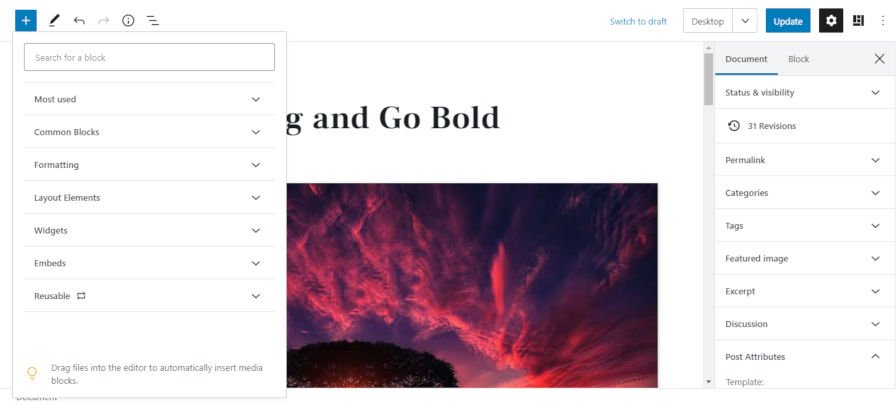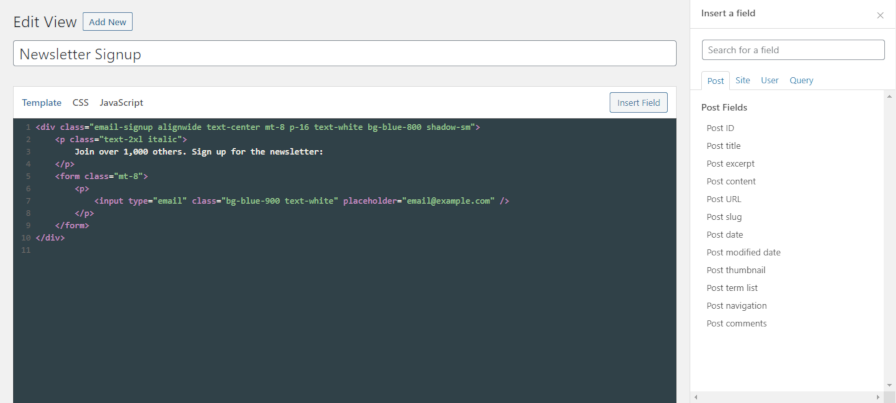From October 5 through October 9, the first Page Builder Summit will open its virtual doors to all attendees for free. Nathan Wrigley, the podcaster behind WP Builds, and Anchen le Roux, the founder and lead developer of Simply Digital Design, are hosting the five-day online event that focuses on the vast ecosystem of page builders for WordPress.
The summit will include 35 sessions spread out over the event schedule. Each session will last around 30 minutes, so it will be easy to pop in and watch one in your downtime. Sessions will cover a range of builders, including the default WordPress block editor, Elementor, Beaver Builder, Oxygen, Brizy, and Divi.
“It’s an event specifically for users of WordPress page builders, or those curious about what they can do,” said Wrigley. “I feel like a page builder style interface for creating websites is the future for our industry. WordPress itself is moving in this direction with the block editor (a.k.a. Gutenberg). With that in mind, it seemed like a good idea to create a dedicated event to share knowledge about this side of WordPress. We’ve tried to include presentations from as many page builders as we could.”
Wrigley made sure to point out that it is not all geared toward developers, discussing the inner-workings of builders. Some of the sessions focus on marketing, optimization, and conversion, which provides a wider range of topics for potential attendees.
The summit hosts created an online quiz for those who are unsure about which sessions to watch.
There is a small catch. The sessions will be freely available only from the time they begin and the following 24 hours. After that, accessing the videos will come at a premium. Attendees can gain lifetime access to the PowerPack for $47 if they purchase within 15 minutes of signing up. Then, prices will rise to $97 until the event kicks off on October 5. Beyond, the price jumps to $147. The lifetime access includes access to the presentations, transcripts, a workbook, and other bonuses from the speakers.
For those unsure about forking over the cash, they can still watch the sessions during the 24-hour window.
The proceeds from the event will go out to paying affiliate commissions to speakers and partners. Some of it will go into planning and investing in a second summit down the road.
“Both myself and Nathan have specific charities that we want to donate to after the event,” said le Roux. “It was part of our goals to be able to do this, but we didn’t want to make this an official contribution.”
Why a Page Builder Summit?
Both Wrigley and le Roux have their preferred builders. But, the goal of the summit is to offer a wide look at the tools available and help freelancers and agencies better streamline their businesses and create happier clients.
“I’ve been a user of page builders for many years, but only at the point where they truly showed in the editing interface something that almost perfectly reflected what the end-user would see did I get really immersed,” said Wrigley. “Having come from a background in which I built entire websites from a collection of text files (HTML, CSS, PHP, etc.), I was fascinated that we’d reached a point where the learning curve for building a good website was significantly reduced.”
He pointed out that it is not always so simple though. While the same level of coding skills may not be necessary, people must figure out how to navigate their preferred page builder, which can come with its own learning curve.
“You need to learn their way of doing things and how to achieve your design choices,” he said. “It’s always going to work out better if you know the code, but the WordPress mission of democratizing publishing certainly seems to align quite nicely with the adoption of tools, like page builders, which mean that once-difficult tasks are now easier.”
For le Roux, her interest in hosting the Page Builder Summit falls back to her design studio.
“As a developer, my main reason for switching to page builders was around streamlining and creating more efficient but quality websites in the shortest amount of time,” she said. “Especially now that we focus on day rates, creating the best possible website that clients would love fast would not have been possible without page builders.”
The Hosts’ Go-To Builders
“We prefer using Beaver Builder with Themer at Simply Digital Design,” said le Roux. “We use Gutenberg for blog posts or where possible with custom post types or LMS software. However, we’ve also taken on a few Elementor projects where that’s the client’s preferred option.”
Wrigley uses some of the same tools. His main work is on the WP Builds website where he hosts podcasts.
“I have used Beaver Builder’s Themer to create templates for specific layouts, but for content creation within those layouts I’m using the block editor,” said Wrigley. “My content is mainly text and the WordPress editor is utterly remarkable in this situation. I kept the classic editor installed for a few months after WordPress 5.0 came about, but I soon realized that this was folly and that the editing interface of Gutenberg is superior. The ability to insert and move text, buttons, etc. is such a joy to work with, and the iterations that have been made in the last two years make it, in my opinion, the best text editing experience on the web.”
Wrigley sees a future in which the WordPress block editor takes over much of the work that page builders are currently handling. However, that future is “still over the horizon.”
“I’m excited about this future though, and we’ve got a few crystal ball-gazing presentations; trying to work out what that future might look like,” he said.

